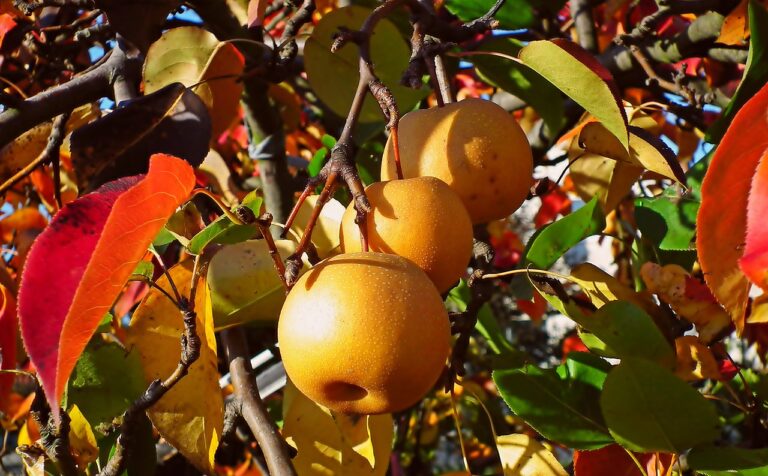The Importance of Bees in Climate Change Adaptation: Cricket bet 999 login, 11x play online, Betbhai9 register
cricket bet 999 login, 11x play online, betbhai9 register: Bees are small, hardworking creatures that play a crucial role in our ecosystem. Not only do they provide us with delicious honey, but they are also essential in pollinating plants, which in turn helps in the production of fruits, vegetables, and seeds. However, bees are facing numerous threats, including habitat loss, pesticides, and climate change. In this article, we will explore the importance of bees in climate change adaptation and what we can do to protect these vital pollinators.
The Role of Bees in Climate Change Adaptation
Bees are excellent pollinators, transferring pollen from one flower to another, which is essential for the reproduction of plants. This process is not only beneficial for plants but also for us humans. According to the Food and Agriculture Organization of the United Nations, about 75% of the world’s crops rely on pollination by bees and other animals.
With climate change leading to shifts in temperature, precipitation, and weather patterns, the timing of flowering plants is also changing. This can disrupt the synchrony between plants and their pollinators, affecting the reproduction and survival of both. Bees, with their ability to adapt to changing environmental conditions, play a crucial role in ensuring the pollination of plants in the face of climate change.
Bees as Bioindicators of Climate Change
Bees are highly sensitive to changes in their environment, making them excellent bioindicators of climate change. Changes in temperature, humidity, and precipitation can impact the behavior, distribution, and population dynamics of bees. By monitoring bee populations and their activity, scientists can better understand the effects of climate change on ecosystems.
Studies have shown that climate change is affecting bee populations worldwide. Rising temperatures, erratic weather patterns, and loss of habitat are putting stress on bee colonies, leading to declines in population numbers. By studying the responses of bees to these changes, researchers can gain valuable insights into the impacts of climate change on biodiversity and ecosystem functioning.
The Importance of Bee Diversity in Climate Change Resilience
Bee diversity is essential for the resilience of ecosystems in the face of climate change. Different bee species have evolved to specialize in pollinating specific plants, ensuring the reproduction and survival of a wide variety of species. This diversity not only enhances the stability of ecosystems but also provides insurance against the loss of certain pollinators due to environmental changes.
Climate change is expected to drive shifts in plant distributions and flowering times, which can affect the availability of food resources for bees. By maintaining a diverse community of bee species, ecosystems can better adapt to these changes, ensuring the continued pollination of plants and the provision of ecosystem services.
Protecting Bees in the Face of Climate Change
As climate change continues to pose a threat to bee populations, it is essential to take action to protect these vital pollinators. One of the most significant threats to bees is habitat loss due to urbanization, agriculture, and deforestation. By preserving and restoring natural habitats, we can provide bees with the resources they need to thrive.
Pesticides are another significant threat to bee populations, affecting their behavior, reproduction, and survival. By reducing the use of harmful chemicals and adopting sustainable farming practices, we can help protect bees from the adverse effects of pesticides. Additionally, raising awareness about the importance of bees and the role they play in our ecosystem is crucial for their conservation.
FAQs
Q: How are bees affected by climate change?
A: Bees are affected by climate change through shifts in flowering times, changes in weather patterns, and alterations in habitat availability. These factors can impact bee behavior, reproduction, and population dynamics.
Q: What can I do to help bees in the face of climate change?
A: You can help bees by planting bee-friendly flowers, reducing pesticide use, supporting local beekeepers, and raising awareness about the importance of bees in our ecosystem.
Q: Why are bees important for climate change adaptation?
A: Bees are important for climate change adaptation because they play a crucial role in pollinating plants, ensuring the reproduction and survival of species. By maintaining healthy bee populations, we can enhance ecosystem resilience and adaptability in the face of environmental changes.
In conclusion, bees are critical for climate change adaptation due to their role as pollinators and bioindicators. By protecting and conserving bee populations, we can help maintain biodiversity, ecosystem functioning, and food security in the face of a changing climate. It is essential to recognize the importance of bees in our environment and take action to ensure their survival for future generations.







